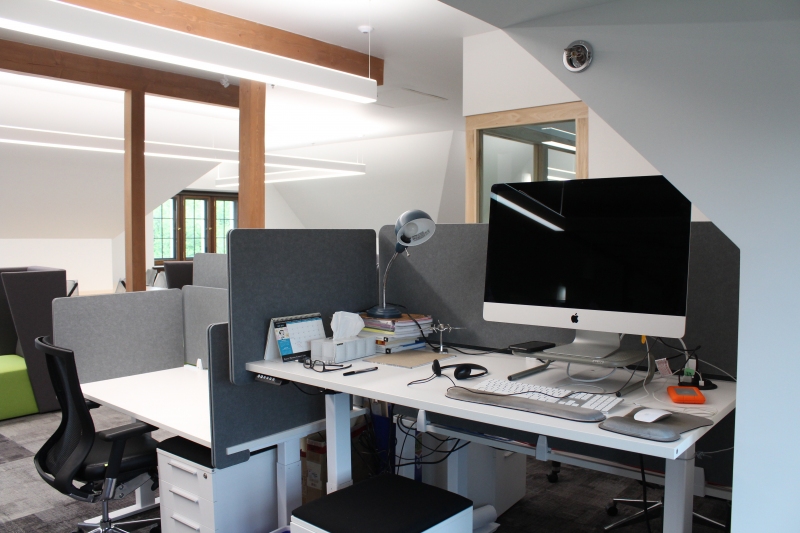
Centre for Resilience: meeting 21st century needs

Canadian Mennonite University's Centre for Resilience is now open for business.
The Centre for Resilience (CFR) is a co-working lab on the fourth floor of CMU's historic building at 500 Shaftesbury Blvd. that will incubate and nurture social enterprises. Faculty, students and staff celebrated the grand opening of the $1.7 million centre on April 13.
"We're thankful for the opportunity to create a space designed to meet the needs of the 21st century," says James Magnus-Johnston, director of the centre. "The CFR will maximize the impact of social entrepreneurs, and allow students to work on complex, real-world problems."
A handful of organizations have already signed on to join the CFR.
They include the Winnipeg chapter of A Rocha, a Christian organization that promotes conservation, education, and sustainable agriculture, and Being Pukka, an organization that uses positive psychology to train, coach, and consult individuals and businesses.
Blossoms Senior Care Inc., a non-medical, private care company for seniors, and Compost Winnipeg, a social enterprise that collects, composts, and tracks organic waste from residents, businesses, and events, have also moved into the fourth floor.
So has Low Environmental Impact Technology (LEIT), a company that makes products that improve the quality of life, and reduce the environmental impact of, Canadian consumers.
Being a part of the CFR is exciting, says Kelly Kuryk, project manager for Compost Winnipeg.
"Sometimes in the environmental world you are in a little bit of a bubble," she says. "The Centre for Resilience is all about tying it in with the academic community, and tying it in with other enterprises and socially-minded operations.
"I can't wait to meet all the different people that will be at the centre, and start to learn about their different connections and how we can all help each other and push forward an agenda that we have mutually in common."
In addition to the fourth floor of 500 Shaftesbury, the CFR includes the land on the north-west parcel of CMU's property. Come fall, this piece of land will display a prototype from Suitehom, a company that builds houses out of shipping containers.
Other developments at the CFR include a Social Innovation Lab, and a new practicum course for CMU students that will begin in earnest come September.
In addition CMU will be offering a new major in Social Entrepreneurship. The course brings together students from a variety of disciplines to work on a problem that has been defined by one of the organizations working out of the CFR.
"It's a different way of thinking about practicum," MagnusJohnston says. He adds that the CFR's profile is rising in Winnipeg. He recently served as one of the judges at a social innovation challenge organized by the economic development agency North Forge Technology Exchange.
And, at the end of April, Manitoba Justice Minister and MLA for Tuxedo Heather Stefanson welcomed MagnusJohnston and CMU Vice-President External Terry Schellenberg to be recognized in Manitoba's Legislature.
It will be fascinating to see how the CFR develops in the future.
"I feel quite excited about it," Magnus-Johnston says.
Story taken from the Spring 2018 issue of The Blazer magazine.
Printed from: media.cmu.ca/centremeets21stcenturyneeds